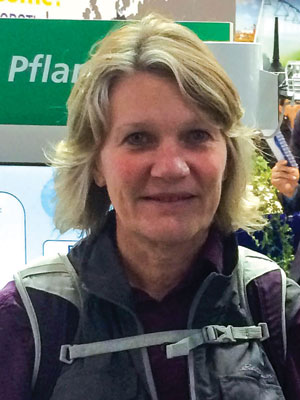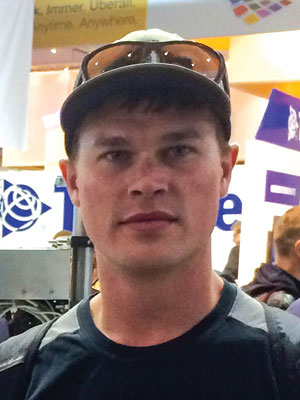
|
Keeping up on trends in agriculture is a goal for most dealers and farmers, and it may be even more important for those heavily involved in precision agriculture. Keeping this in mind, my business partner and son, Brent, and I were able to visit Europe this past fall.
During the trip, we had the opportunity to talk to several farmers and precision farming dealers, primarily in France and Germany, and we ended our trip with a visit to Agritechnica, the largest farm equipment show in the world in Hannover, Germany.
Our company, Triangle Ag Services, is located in Fort Benton, Mont., a region known as the “Golden Triangle,” for its geographic shape and contains the third highest wheat producing county in the U.S.
Visiting with European dealers, we found that they share many of the same problems and challenges we face when it comes to selling and servicing technology. Fierce competition, especially from factory installs, is prevalent. Manufacturer support and responsiveness is also a shared concern to help us adapt to the changing marketplace.
But one of the interesting differences is that overseas dealers said only about 30% of their farm customers have some sort of precision equipment, which is very different from the level of adoption here at home. The farmers we met with said their small field size makes automated steering less attractive and since much of their ground has been under cultivation for hundreds of years, they think there is less soil variability.

|
But these are only part of the reasons for the slower precision adoption by European farmers. They’ve had fewer differential correction sources in the past, tramlines are part of normal farming practices and instead of a handful of major equipment manufacturers, European growers have many iron choices available to them.
The numerous brand options creates a greater need for compatibility that we don’t see in the U.S. This is done mainly through ISOBUS control, and even the crop data flows through ISO. There was particular emphasis on compatibility solutions at Agritechnica because ISO is a fact of life for companies that want to do business in Europe.
Many European dealers that we spoke with had more than just hardware sales at their locations. RTK networks, variable-rate prescription creation and equipment repair were offerings that we saw. Service plans and equipment installations help boost local dealers’ bottom lines, but there is also some unusual diversity within the companies we visited.
“ISO is a fact of life for companies that want to do business in Europe…”
One precision dealer we visited, geo-Konzept in Germany, has diversified from agriculture to a custom solution for quarries. They have been able to leverage their technology and human assets to introduce unique and profitable solutions for mining, such as safe blast designs. They’ve also developed specialty remote sensing solutions, using their own in-house team of programmers.
Roaming the grounds at Agritechnica, we found that diversity was amplified with a multitude of precision components and solutions on display — from motherboards and bearings to tractors and combines. The show is unique in many ways, and I know I’ve never visited a farm show booth in the U.S. that had a server greet me with a tray and ask if I would like a free beverage.
Overall, our trip was an eye opener in looking at the precision business from a completely different and global perspective. We hope that over time, some of what we saw and learned will be part of the precision industry in the U.S.







